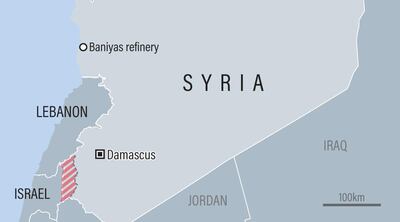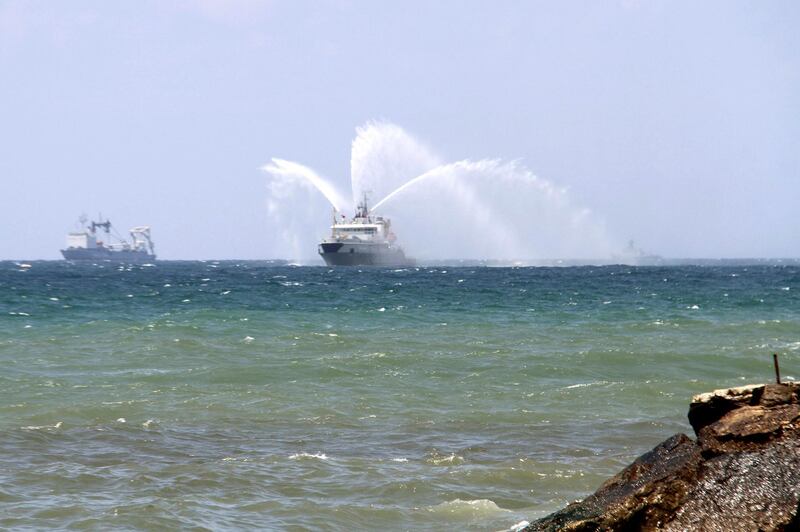A mysterious attack on pipelines off Syria’s coast, which a Syrian official said was conducted with the help of a foreign state, disrupted an Iranian crude oil delivery.
On June 22, explosive devices damaged underwater pipelines used to deliver crude oil from tankers to the Baniyas refinery, in the western Syrian governorate of Tartus, causing an oil spill, the official Syrian news agency Sana reported.
The sabotage was “qualitative and professional”, the deputy head of the Syrian Company for Oil Transport told a local radio station, adding that a foreign state co-ordinated with the perpetrators to send a message to Damascus.
TankerTrackers.com, a US company that closely follows Iranian oil shipments to Syria, saw the Iranian-flagged Stark I oil tanker arriving off the Baniyas coast a day after blasts disabled the pipelines.

The vessel briefly turned on its transponder in the Suez Canal on June 19, but otherwise has been offline since May 12, when it was seen off Iran’s Larak Island, an export point for Iranian crude, TankerTrackers.com said.
The Stark I sailed into position to offload its crude through the pipelines to the Baniyas refinery by June 27, the website said.
A pipeline below the tanker appeared to be still damaged at the time.
The pro-Syrian government Al Watan newspaper reported that a tanker that arrived at Baniyas was unable to discharge its cargo because of the pipeline damage, leading the Baniyas refinery to cease operations on June 25 as repairs were under way.
TankerTrackers co-founder Samir Madani said that, in the short term, the sabotage of the pipelines does little to slow down Iranian deliveries, but might prompt Syria to increase coastal defence.
“It seems that someone was trying to send both Tehran and Damascus a message," Mr Madani said. "If they can take out the pipelines, what’s next?”
The pipeline attack comes amid escalating tension between the US and Iran, with Washington accusing Tehran of being behind the May 12 sabotage of commercial vessels and June 13 attack on oil tankers in the Gulf of Oman, while Iran shot down a US drone on June 20.
The Stark I left Baniyas on Tuesday, TankerTrackers.com said, adding that "more tankers may likely arrive".
Tartus hosts a Russian port about 40 kilometres south of Baniyas.
Meanwhile, Al Watan reported the following day that repairs had been completed on the pipelines and a million barrels of crude were unloaded from a tanker.
The arrival of another tanker is expected within a week and the Baniyas refinery was due to restart operations on Wednesday.
Iran restarted crude oil deliveries to Syria in May, in defiance of US sanctions, after a lull in shipments since the end of 2018.
In April, Al Watan blamed a severe fuel crisis racking the war-torn country on the lack of Iranian shipments, saying Syrian production could only cover 24 per cent of the war-torn country's needs.
The Iranian shipments had stopped after Tehran froze a credit line to Damascus in October 2018.
Washington has moved to impede Syria’s ability to import oil, issuing advisories to shippers in November 2018 and March 2019 highlighting the “significant US sanctions risks for parties involved in petroleum shipments to Syria".
In the past year, the US has also sanctioned a network of Russian and Iranian figures and two Lebanon companies for enabling Iranian oil shipments to Syria.
The Stark I and its registered owner, Atlantic Shipping and Transportation in Belize, were sanctioned by the US in November 2018 for their links to National Iranian Tanker Company.






